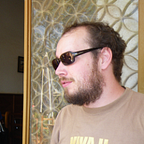Sudan Is Arming Africa and No One Cares
Khartoum’s weapons and ammo fuel conflicts across the continent
by PETER DÖRRIE
Sudan is full of conflict. Soldiers still murder civilians in Darfur, rampant violence engulfs South Kordofan and the Nuba Mountains, and rebels face off against the government in Blue Nile State.
But despite these troubles at home, the Sudanese government under Pres. Omar Al Bashir—who has the distinction of being the first standing head of state indicted for war crimes—is intent on arming practically everyone in Africa.
Researchers have long traced weapons and ammo across the continent back to Sudan. They’re finding not just Sudanese weapons and ammo, but arms transiting through Sudan from China and Iran.
Armies and militants from the Ivory Coast to Somalia use Sudanese merchandise. Khartoum runs a powerful arms industry, one that seems happy to sell guns to the highest bidder … as well as lavish arms on its allies.
At the heart of Sudan’s arms distribution network sits the Military Industry Corporation, a government-owned weapons manufacturer.
Its website touts a huge arsenal of domestically-produced hardware, including local variants of AK-pattern rifles, ammunition for light and heavy weapons, armored vehicles and artillery.
Few, if any, of these arms were locally developed. MIC specializes in copying foreign designs, often Chinese. Beijing is the biggest official arms supplier to Sudan, to the tune of $35 million a year.
For obvious reasons, Sudan doesn’t publish much information about its arms business, but researchers from Conflict Armaments Research, the Small Arms Survey and others have documented Sudanese weapons and ammunition in a surprising number of conflict areas.
Séléka rebels toppled Pres. François Bozizé of the Central African Republic in 2013 using Sudanese ammo. Sudanese mercenaries fought alongside the rebels, so it’s possible they were the source of the arms.
However, researchers from Conflict Armament Research confirmed several direct weapon sales between the rebels and Sudan. A cargo plane delivered the weapons to Bangui—the Central African Republic’s Capital.
Unfortunately for Séléka, they couldn’t keep all their toys. In 2014, the rebels withdrew the bulk of their forces from Bangui after fierce resistance from armed groups calling themselves the “anti-machetes.” The rebels left behind guns, bullets and vehicles.
These weapons then filtered to anti-machete militias, bandits and the reformed, but still ineffective, Central African army.
“Sudan and China produced the majority of the recently manufactured [post-2000] weapons and ammunition documented in CAR on all sides,” the researchers state in their report.
“Chinese and possible Iranian-manufactured small arms ammunition and larger munitions have been re-transferred from Sudan to CAR.”
In the case of Séléka, it’s likely that ideological and strategic considerations played into Sudan’s decision to supply the group. Séléka defined itself as the voice of the Central Africa Republic’s Muslim population, demanding a share of the Christian-dominated power structure.
For the government in Khartoum, which has fought a decades-long civil war against Christian minorities in today’s South Sudan, this a compelling reason to get involved. The Central African Republic borders both Chad and South Sudan, countries with which Sudan has strained relations.
Propping up Séléka as a proxy makes strategic sense. But in other cases, it’s difficult to ascertain a clear motive beyond simple financial gain.
Researchers discovered up to 500,000 rounds of Sudanese and Iranian ammunition in northern Ivory Coast in 2009. Thought to have entered the country through neighboring Burkina Faso, the conflict zone is roughly 2,600 miles away from Sudan. Khartoum doesn’t have any particular strategic objectives in the region.
Sudan has supplied arms to non-state actors in the Democratic Republic of Congo as well as South Sudan—where Khartoum maintains proxy forces.
Sudanese weapons and ammunition has found their way into Somalia and, more recently, onto the battlefields in Libya. Sudan’s government defines itself as Islamist, putting it in close ideological proximity with some of the rebel groups in Libya.
But making money is just as important for the Sudanese government. Khartoum’s revenues have suffered since the 2011 secession of South Sudan, which took two thirds of the combined oil production with it.
Sudan has little in the way of competitive industry, and suffers the huge costs of fighting multiple civil wars at once, making the entry into the black market a financially-enticing affair.
Curiously, there’s no international treaty explicitly addressing the issue. But arming non-state actors is illegal under international law, with few exceptions. In several cases, such as Ivory Coast, Sudanese arms exports were in direct violation of United Nations arms embargoes.
Iranian weapons and ammunition have been under a general embargo since 2007. Sudanese re-exports of Chinese arms almost certainly ignores standing end-user agreement. This is by no means just a problem for people involved in those conflicts.
Once rebels get their hands on weapons, they become almost impossible to trace and control. Weapons used in Africa’s various conflicts circulate freely across the continent—for decades. This makes it easy for terrorists to get their hands on sophisticated weaponry.
Unfortunately, controls, regulations and prosecution are weak when it comes to the international arms trade. With little indication that anybody actually cares, Sudan will likely continue to arm rebels and rogue governments across Africa for some time to come.
